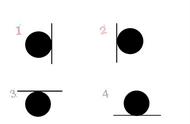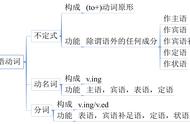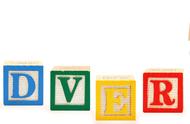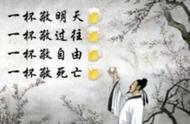
(1)there be 句型。其中be也可以是appear,enter,come,exist,happen,lie,live,remain,seem,stand等。
There are some serious problems in the management of the company.
公司的管理上存在着一些严重的问题。
There stands a temple on the top of mountain.
山顶上有座庙。
(2)在以here,there,now,thus,then,out,in,up,away,down,off,back,over等副词开头的句子里,谓语动词是be,come,follow,go,begin等,且句子的主语是名词时,用倒装表示强调。
Here comes the bus.
汽车来了。
Out rushed the children after class.
下课后孩子们冲出(教室)来了。
注意:在这类句子中,主语如果是代词而不是名词,则主谓不倒装。
Down it fell from the tree.
它从树上跌落下来。
(3)such作表语,置于句首,译为“……就是如此”。
Such were his words.
他就是这样说的。
(4)表“地点”的方位名词置于句首或强调地点概念,且句子主语是名词时。
In this chapter will be found the answers to those questions.
在这一章节将会找到那些问题的答案。
(5)强调分词动作,用“分词+be+主语”结构。
Gone are the days when we suffered from SARS.
我们深受“非典”之苦的日子一去不复返了。
(6)为了保持句子平衡,强调表语或状语或使上下文衔接紧密,句子全部倒装。
From the next room came a faint voice.
从隔壁的房间里传出一丝微弱的声音。
拓展:
在全部倒装句式中,谓语动词的数要与后面的主语的数一致。
In front of the building stands two tall trees. 【误】
In front of the building stand two tall trees. 【正】
楼前有两棵很高的树。
部分倒装的具体用法:(1)only修饰句子的状语(副词、介词短语或状语从句)且位于句首时。
Only when they returned did I know what had happened.
只是当他们回来时,我才知道发生了什么事情。
注意:only修饰的如果不是句子的状语,或者修饰状语但不位于句首,主谓也不倒装。
Only you know my secret.(修饰主语)
只有你知道我的秘密。
(2)表示否定意义的副词(如never,hardly,seldom,little等)、介词短语(如at no time任何时候都不,by no means绝不,in no case绝不,under no circumstances/conditions任何情况下都不)或连接词(如not only...but also...,not until,no sooner...than...,hardly...when...,so...that,such...that等)位于句首时,句子部分倒装。
Never have I heard of this.
我从没听说过这事。
In no case must force be resorted to.
无论如何都不能诉诸于武力。
注意:并列连词not only...but also...,no sooner...than...,hardly...when...连接两个并列分句时,只是前一分句倒装,后一分句不倒装,但是neither...nor...连接的两个并列分句都要倒装。
Neither do I know about him,nor do I care.
我既不了解他,也不关心他。
Hardly had he finished the work when it began to rain.
几乎在他完成工作的同时天下雨了。
(3)一些表示频率的副词如often,always,once,many a time,thus,now and then等位于句首时,句子部分倒装。
Often have I told you not to smoke any more.
我经常告诉你不要再吸烟。
(4)副词so位于句首,表示前面所述肯定情况也适合于另一个人或物,或者neither/nor位于句首,表示前面所述的否定内容也适合另一人或物时,句子部分倒装。
If you go hiking,so will I.
如果你去远足,我也去。
注意:so+助动词+主语表示“……也一样”,而so+主语+助动词表示“……确实如此”。
—Jack,you forgot to collect your clothes last night.
杰克,你昨晚忘了收衣服了。
—Oh,dear!So I did!And so did you!
噢,天哪!的确如此!你也是(忘了收衣服)。
I haven't forgotten my promise,neither/nor have you.
我没忘了我的诺言,你也没有。
(5)虚拟语气中条件句的倒装。当虚拟条件句中有be动词were,助动词had或情态动词should时,可将if省略,但同时要将were,had或should置于句首。
Should you receive the letter tomorrow(=If you should receive...),you would inform me at once.
你如果明天收到信,就马上通知我。
(6)表示祝愿的句子(标语或口号中也用全部倒装或部分倒装)
May you succeed!祝你成功!












